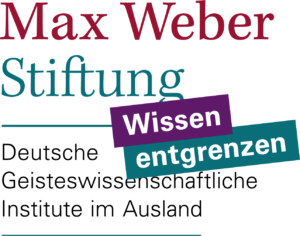Very happy to share with you our program and abstracts of our closed panel “Perform_Factur_ing /Healthy/ Wo_Man: Iran, Turkey and Beyond” that will be held as part of our internal IRSSC closing conference.
The panel aims to bring together scholars working on masculinities, health and related issues in geographically, culturally, and academically diverse environments in order to discuss socio-technical and socio-cultural circumstances around empowerment, (medical) technology and the body. The panel addresses questions around managing and experiencing dis/abilities and health, media assemblages and medicalization processes of masculinities from a theoretical, empirical and artistic point of view. The panel consists of following 4 presentations and 1 performance lecture.
Panel organizers: Melike Şahinol, Burak Taşdizen, Gülşah Başkavak (Orient-Institut Istanbul)
Chair: Emine Öncüler Yayalar (Bilkent University)
Discussant: Raoul Motika (University of Hamburg)
| Thursday, 10 February 2022 | |
| 16:00-16:15 | Welcome remarks Raoul Motika (University of Hamburg) & Melike Şahinol (Orient-Institut Istanbul) |
| Perform_Factur_ing /Healthy/ Wo_Man: Iran, Turkey and Beyond Chair: Emine Öncüler Yayalar (Bilkent University) Discussant: Raoul Motika (University of Hamburg) | |
| 16:15-16:45 | Military Disability, Everyday Experiences, and Masculinity Nurseli Yeşim Sünbüloğlu (Kadir Has University) |
| 16:45-17:15 | Lived Experiences of Challenges of Love Among Iranian Girls with Physical Disability Azam Naghavi & Mahtab Esmaeilipour (University of Isfahan) |
| 17:15-17:30 | BREAK |
| 17:30-18:00 | Medicine Man: Media Assemblages of Medicalized Masculinity Karen Hvidtfeldt (University of Southern Denmark) |
| 18:00-18:30 | The Post-Stoic Soldier: Managing Mental Health During Britain’s “Psywars” Alex Edmonds (University of Edinburgh) |
| 18:30-18:45 | BREAK |
| 19:45-19:15 | (i) the disabled IRL Setareh Fatehi (Independent Choreographer) |
| 19:15-19:45 | DISCUSSION |

Panelist: Nurseli Yeşim Sünbüloğlu (Kadir Has University)
Title: Military Disability, Everyday Experiences, and Masculinity
Abstract: This presentation deals with the construction of gendered militarised disability of combat-injured veterans of the Kurdish conflict in the interplay of official identity and embodied everyday experiences in the context of an ongoing internal armed conflict. I point out the significance of the reason behind the veterans’ impairment and political connotations of soldiers’ disability in shaping experience of disability and subjectivity.
Drawing on empirical data from my research regarding the gendered and embodied experiences of disabled veterans, I highlight the complex dynamic of inclusion (especially through military title and social benefits) and exclusion (as individuals with disability) in veterans’ everyday lives. I demonstrate that the same dynamic manifests itself in the relationship between veterans and the wider disabled population in Turkey – while the veterans distance themselves from the wider disabled population on the level of military identity (gazi), they acknowledge similarities in bodily experience on an everyday level.
Bio: Nurseli Yeşim Sünbüloğlu obtained her PhD in Sociology at the University of Sussex. She has published articles and chapters focusing on masculinities, disability, militarism, and nationalism. She edited a volume in Turkish translated as Militarism, Nationalism, and Men/Masculinities in Turkey (2013). She is a member of the Initiative for Critical Studies of Masculinities and in the editorial board of Masculinities: A Journal of Culture and Society. She was the coordinator of Manual for Non-Violent Masculinities Workshops project. She is currently a faculty member at Kadir Has University.
Panelists: Azam Naghavi & Mahtab Esmaeilipour (University of Isfahan)
Title: Lived Experiences of Challenges of Love Among Iranian Girls with Physical Disability
Aim: Love and having a romantic relationship is a neglected need among people with physical disabilities, especially among women. This is even more challenging in countries such as Iran where talking about love and sex is still a taboo. The purpose of this study was to draw a picture of an aspect of the life of 15 Iranian women with physical disabilities.
Methods: We used a thematic analysis approach to collect and analyze data. Participants were selected through snowball sampling from non-governmental organizations supporting people with disabilities.
Results: Four main themes including the meaning of love and sex, culture and its dos and don’ts, obstacles and recommendations were extracted from the data.
Discussion: The need for love and sexual relationship is one of the unmet needs of women with disabilities in Iran. Neglecting to meet this need is placed in a broader cultural context in which it is generally not encouraged to talk openly about love and sex. On the other hand, meeting the psychosocial needs of people with disabilities generally encounters challenges in Iran. Therefore, people with disabilities are faced with inappropriate views of society about love and sex, especially for women, and this leads to negative psychosocial consequences for this group. The results of the research pave the way for further research in this field, as well as the design of cultural guidelines around the importance of paying attention to the need to have a romantic relationship and sex as one of the most fundamental human rights for people with disabilities.
Bio 1-Azam Naghavi is an Associate Professor in Psychology, working in the Faculty of Education and Psychology, University of Isfahan, Iran. Since 2015, she is running the unit of Rehabilitation Counseling in this university. Her main research interests are Psychological trauma, Disability studies and empowerment studies. She has been the representative of internationalization of the faculty of Education and Psychology since 2016.
Bio 2- Mahtab Esmaeilipour has studied MA in Family Counseling, and is a PhD candidate in Counseling at the moment. She has worked with women with disabilities in the last 4 years and has extensive experience of working with this group.
Panelist: Karen Hvidtfeldt (University of Southern Denmark)
Title: Medicine Man: Media Assemblages of Medicalized Masculinities
Abstract: The research project Medicine Man: Media Assemblages of Medicalized Masculinities is funded by the Independent Research Fund Denmark (2018-23). In this talk I will present the group’s ongoing work. The project explores medicalized masculinity as media assemblages as it appears in popular culture, social media, news, and online health sites by asking how everyday cultures and perceptions of middle age men’s bodies unfold when masculinity is increasingly medicalized. While the female body has traditionally been the subject of medical interventions and beauty-enhancing treatments, and the young male body has been exposed to regulation, discipline and increased medical diagnostic intervention, the midlife male body has until recently escaped regulatory intervention. Today, however, the middle-aged male body is also subjected to rejuvenating treatments and modifications and performance enhancing substances, including an intensified medicalization of sexual practices, as well as a reconfiguration of men’s middle age from a cultural (“midlife crisis”) to a medical paradigm (“men’s menopause”). Following masculinity and assemblage theory, we understand masculinity as a negotiated position deriving from a variety of positions established in relation to each other, rather than as solely originating from the male body. Assemblage theory provides the opportunity for complex analytical approaches including imaginaries, discursive and non-discursive, human and nonhuman elements; in this case masculinity emerging from both gendered and medicalized technologies and thus allows us to acknowledge gender as performative and contextual and to examine masculinities as unstable connections in their specific contexts.
Bio: Karen Hvidtfeldt is a professor at the University of Southern Denmark and head of Center for Gender and Diversity. She works with cultural understandings of gender and age, health and illness as embodied, social, and affective aspects of everyday culture, popular culture, social media, literature and art. She teaches and heads several research projects within this field.
Panelist: Alex Edmonds (University of Edinburgh)
Title: The Post-Stoic Soldier: Managing Mental Health During Britain’s “Psywars”
Abstract: The “stiff upper lip” is a touchstone of identity in the UK today, sometimes culturalized as British stoic resolve, sometimes blamed for feeding mental illness stigma. In this talk I examine stoicism as a set of practices and moral norms, now often highly contested, that shape mental health and health care in military communities. Drawing on ethnography with soldiers, ex-soldiers and mental health professionals, I analyse how research participants talk about suffering and violence in varied military, clinical and social environments – and the consequences of such talk.
Since the early 2000s a “post-stoic” military subject has emerged who must not silently suffer, but is enjoined to talk about their mental health. This new subject was formed in Britain’s psywars, a term I used in an expanded sense to describe a military formation wherein not only enemy and foreign civilians are psychologically managed, but also the nation’s own serving and former soldiers. Rather than see military subordinates as problematic patients, I argue that they have insight into the contradictions entailed by psywar, which have important implications for mental health care, military institutions, and any future wars.
Bio: Alex Edmonds is Professor of Social and Medical Anthropology at the University of Edinburgh. His research has investigated plastic surgery, mental health, military cultures, and psychiatric practice. He led the Afterlives of War project, a multi-country study of combat veterans’ mental health and health care, funded by a European Research Council starting grant. He is also the author of Pretty Modern: Beauty, Sex and Plastic Surgery in Brazil, and holds a BA in philosophy and religion from Stanford and a PhD in anthropology from Princeton.
Panelist: Setareh Fatehi (Independent Choreographer)
Title: (i) the disabled IRL
Abstract: In a performance-lecture (i) the disabled IRL as a part of the coming CME conference, setareh will be exploring the notion of ableism in the context of international gatherings and remote communication. The technologies that pose as a bridge between distanced bodies, embedded in the devices and the behavioral habits of the ones handling them, can mask the cognitive distance between (i) and the Other and create an illusion of “them being the same”. Can discourses around ableism bring a light to this issue from another angle? Might it be that the bodies invited to the international and diverse dream of global thinking are getting disabled by the institutions that are only inviting their body and not the context that they are living in?
Bio: setareh fatehi is an artist/choreographer based in Tehran and Amsterdam (pronoun: او ). Creating trans-local collaborative spaces underlies setareh’s research-practice parallaxed(i). Setareh thinks through the specificity of the body-as-presence, in relation to body-as-soma and body-as-image. او has been making conditions to create “remote movements” with “absent” bodies that are cut off from the lived experiences of one another on either side of geo-(economical and political) borders.
In the past year setareh’s practice developed into researching remote-hosting mechanisms in which different hosts were invited to physically replace setareh’s body while hosting او online during workshops, lectures and other events that او has been invited to. او is problematising the urge for physical togetherness (IRL: in real life) in the discourses around internationalization and diversity specifically within the artistic and academic institutions that او has been a part of.
Hosted by Orient-Institut Istanbul
Kindly funded by German Federal Ministry of Education and Research (BMBF)

